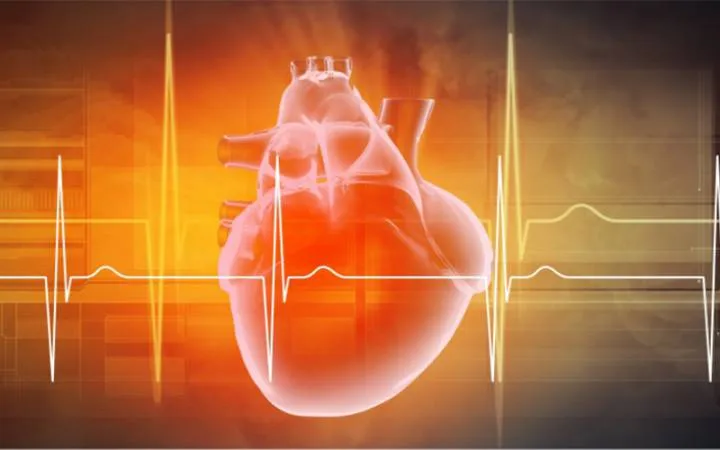Tests Included (8)
- VITAMIN B-12
- VITAMIN B1/THIAMIN
- VITAMIN B2/RIBOFLAVIN
- VITAMIN B3/NICOTINIC ACID
- VITAMIN B5/PANTOTHENIC
- VITAMIN B6/P5P
- VITAMIN B7/BIOTIN
- VITAMIN B9/FOLIC ACID
Vitamin B Complex Profile is acombination of 8 Vitamins namely, B1, B2, B3, B5, B6, B7, B9, and B12 ensures the proper functioning of the body. Thesevitaminsobtained by the body from dietary products, are essential for various body functions like red blood cells production, boosting immunity, overcoming depression and stress, lowering badcholesterolwhile increasing good cholesterol, breaking down fats and carbohydrates to produce energy, hormone production, improving skin, hair, and nails. Deficiency of Vitamin Bcan result in low hemoglobin, depression, weakness, neurological deficits, birth defects in babies, or increased chances of infections.Book a Vitamin B Complex profile at a very low cost. Also, get the home collection for this test.
What is being tested?
The B vitamins are nutrients that the body requires in small amounts (micronutrient) for metabolism, energy production, and for cell, skin, bone, muscle, organ, and nervous system health. B vitamin tests measure these specific compounds in the blood or urine to help evaluate a persons nutritional status.
B vitamins are absorbed from the diet, used as needed, and any excess is removed from the body through the urine. Because B vitamins are water-soluble, only small amounts are stored by the body and they must be obtained from foods rich in B vitamins or from supplements on a regular basis. Severe B vitamin deficiencies are rare in the United States but are still prevalent in areas of the world with diet deficiencies.
B vitamin deficiencies can occur when:
- There is an inadequate supply of B vitamins.
- You are unable to absorb or utilize one or more of the vitamins.
- You eat foods or take drugs that slow or prevent the absorption, production or action of a vitamin.
- A deficiency in another vitamin or mineral prevents its use.
- The need for the vitamin is increased.
The B vitamins include:
B1, Thiamine or thiamin
Also known as: Vitamin F, Aneurin, Thiamine diphosphate (TDP) physiologically active form
Role: B1 is a coenzyme that helps the body produce energy, is involved in glucose, amino acid, lipid, and alcohol metabolism, and is required for the proper functioning of the nervous system, heart, and muscles.
Sources: Whole grains and fortified bread, cereal, pasta, and rice; Meat (especially pork) and fish; Legumes (such as black beans and soybeans), seeds, and nuts
Deficiency: Found primarily with chronic alcoholism, HIV/AIDS, diabetes, those who have had bariatric surgery and older individuals. Some medicines such as furosemide and 5-fluorouracil can lower thiamin levels in the body. Thiamin deficiency can cause loss of weight and appetite, confusion, memory loss, muscle weakness, and heart problems. It causes Wernicke-Korsakoff syndrome, which mostly affects people with alcoholism, with tingling and numbness in the hands and feet, severe memory loss, disorientation, and confusion. Less commonly, severe thiamin deficiency leads to a disease called beriberi.
Test name: Thiamine (Thiamine diphosphate) in blood
Other ways to measure: Transketolase (functional thiamine test)
B2, Riboflavin
Also known as: Vitamin G
Role: B2 is a coenzyme involved in energy production, cellular function, growth, and development; and metabolism of fats, drugs, and steroids, and is required for the metabolism of other B vitamins. In addition, riboflavin helps maintain normal levels ofhomocysteine, an amino acid in the blood.
Sources: Eggs, organ meats (such as kidneys and liver), lean meats, and low-fat milk; Green vegetables (such as asparagus, broccoli, and spinach); Fortified cereals, bread, and grain products
Deficiency: Called ariboflavinosis, usually seen along with other vitamin deficiencies in those with alcoholism, malabsorption, liver disease, in the elderly, vegetarians (especially strict vegetarians who avoid dairy foods and eggs), pregnant women and breastfeeding women and their babies. Riboflavin deficiency can cause skin disorders, sores at the corners of your mouth, swollen and cracked lips, hair loss, sore throat, liver disorders, and problems with reproductive and nervous systems. Severe, long-term riboflavin deficiency can cause anemia and cataracts.
Test name: Riboflavin, blood or urine
Other ways to measure: Glutathione reductase in erythrocytes (activity)
B3, Niacin
Also known as: Nicotinic acid, Nicotinamide, Vitamin P, Vitamin PP
Role: B3 is involved in enzyme reactions, metabolism, and energy production. It is given in pharmacologic doses to lowerLDL cholesterolandtriglyceridesand raiseHDL cholesterol
Sources: Meats, such as poultry, beef, pork, and fish; Some types of nuts, legumes, and grains; Enriched and fortified foods, such as many breads and cereals
Deficiency: Seen in undernourished people with AIDS, alcohol use disorder, anorexia, inflammatory bowel disease, or liver cirrhosis; with carcinoid syndrome, a condition in which slow-growing tumors develop in the digestive tract. Severe niacin deficiency leads to a disease called pellagra, classic symptoms are dermatitis (rough skin that turns red or brown in the sun), a bright red tongue, vomiting, constipation or diarrhea, depression, headaches, extreme tiredness, aggressive, paranoid, suicidal behavior, hallucinations, apathy, loss of memory
Toxicity: Pharmacologic doses can cause flushing, headaches, low blood pressure, highblood sugar levels, blurred or impaired vision and fluid buildup in the eyes. High doses may damage liver.
Test name: Niacin and metabolites in blood or urine; N1-Methylnicotinamide, N1-methyl-2-pyridone-5-carboxamide in urine thought to be the most reliable measure of intake and body status
Other ways to measure: measured as NAD (Nicotinamide adenine dinucleotide) in blood or urine
B5, Pantothenic acid
Role: B5 helps break down and use fats, proteins, and carbohydrates.
Sources: Most foods
Deficiency: B5 deficiency is rare as it is widely distributed in foods. However, people with a rare inherited disorder called pantothenate kinase-associated neurodegeneration cant use pantothenic acid properly. This disorder can lead to symptoms of pantothenic acid deficiency, associated with burning feet and impaired wound healing.
Test name: Pantothenic acid in blood or urine
B6, Pyridoxal Phosphate (PLP)
Role: B6 is a coenzyme involved in amino acid metabolism andhemoglobinsynthesis. It is also necessary for the nervous system and immune system.
Sources: Poultry, fish, and organ meats; Potatoes and other starchy vegetables; Fruit (other than citrus)
Deficiency: B6 deficiency is rare by itself; adequate B2 is required for the formation of active PLP; may be seen with chronic alcoholism, malabsorption, smoking, kidney malfunction, autoimmune disorders and in those who take certain antiepileptic drugs and theophylline. Deficiency can cause anemia, itchy rashes, scaly skin on the lips, cracks at the corners of the mouth, a swollen tongue, depression, confusion, and a weak immune system. Infants who do not get enough vitamin B6 can become irritable or develop extremely sensitive hearing or seizures. Overdosing can cause severe nerve damage, leading people to lose control of their bodily movements.
Test name: Pyridoxal phosphate (PLP) in blood
Other ways to measure: Vitamin B6 functional test, Urine 4-pyridoxic acid, urine xanthurenic acid
B7, Biotin
Also known as: Vitamin H, Coenzyme R, Biopeiderm
Role: B7 is a coenzyme that is necessary for fat, protein, and carbohydrate metabolism and plays a role in hormone production.
Sources: Meat, fish, eggs, and organ meats (such as liver); Seeds and nuts; Certain vegetables (such as sweet potatoes, spinach, and broccoli). B7 is also made by intestinal bacteria.
Deficiency: Very rare; may occur in those receiving total parenteral nutrition, with chronic alcohol abuse, and with some inborn errors of metabolism, such as biotinidase deficiency; deficiency of biotin can cause thinning hair and loss of body hair; a rash around the eyes, nose, mouth, and anal area; pinkeye; seizures; skin infection; brittle nails; and nervous system disorders. Symptoms of biotin deficiency in infants include weak muscle tone, sluggishness, and delayed development. Biotin has not been shown to cause any harm. However, supplements that contain biotin may cause false results in many lab tests, including but not limited to cardiovascular diagnostic tests and hormone tests.
Test names: Biotin in blood
Other ways to measure: Urinary 3-hydroxyisovalerate excretion
B12, Cobalamin
SeeVitamin B12 and Folate
B9, Folic Acid or Folate
Also known as: Vitamin B9, Vitamin M
SeeVitamin B12 and Folate
FAQs related to Vitamin B Complex:
Q. How is the test used?
Answer: One or more B vitamin tests may be used to diagnose deficiencies if you have typical symptoms.
B vitamin toxicity rarely occurs so testing is not often done for this purpose. High concentrations of a few of the B vitamins may affect the liver or nervous system.
Q. When is it ordered?
Answer: Testing is primarily ordered when you have signs and symptoms that may be due to a B vitamin deficiency. Signs and symptoms depend on the vitamins that are deficient. Examples of some of the common ones include:
- Rash, dermatitis
- Inflamed tongue, sores on the lips or in the mouth, cracks at the corners of the mouth
- Numbness, tingling or burning in the hands or feet (peripheral neuropathy)
- Anemia
- Fatigue, insomnia
- Irritability, difficulty with memory, depression
Testing may also be ordered when you have a condition that puts you at risk of B vitamin deficiencies. Examples of these conditions include:
- A limited or inadequate diet
- Malnutrition
- Being given nutrition intravenously (parenteral nutrition)
- Taking a drug that interferes with absorbing, using or breaking down vitamin B
- Gastric bypass surgery
- Alcoholism
- Chronic diseases associated with malabsorption, such as celiac disease
Q. What does the test result mean?
Answer: Test results that are low may indicate a B vitamin deficiency but will not reveal whether it is due to an inadequate supply or an inability to absorb or use available B vitamins.
If test results are normal, then it is more likely that your symptoms are due to another cause.
A high B vitamin level may be associated with vitamin toxicity. This rarely occurs and when it does, it is usually due to taking high doses of the vitamin supplements.
Q. Can I change my B vitamin levels?
Answer: In general, your body will use the amount of B vitamins that it needs and eliminate any excess from the body. As long as an adequate amount of B vitamins are provided in yourdiet, blood levels will remain relatively stable. If you are deficient, your healthcare provider may want you to supplement your B vitamins but talk to your provider before taking this step.
Q. Should everyone have their B vitamin levels checked?
Answer: Most people have adequate B vitamins and will not need testing unless they develop a condition that puts them at risk of a B vitamin deficiency.
Booking Procedure:
- Fill the booking form on right side with Name, Address, Mobile no.
- Blood/Urine samples will be collected from your Home address. 10-12 hrs fasting is required.
- You need to make the payment by cash to Thyrocare when Technician comes to pick up the samples OR Pay online after confirmation of booking.
- Reports will be couriered at your residence in 3-4 working days if hardcopy is opted. We will email the reports within 48-72 hrs on your email address mentioned while booking.
- Sample pickup at home
- Online reports within 48 hours

User Reviews
Please add your review
Similar test/profile
At Second Medic, we offer a comprehensive range of lab tests to help diagnose and monitor a wide variety of medical conditions. Our state-of-the-art laboratories are equipped with the latest technology and staffed by highly trained professionals, ensuring that our patients receive accurate and reliable results.
We offer a wide range of lab tests, including blood tests, urine tests, and other diagnostic tests. Our lab tests are designed to provide a comprehensive view of a patient's health, allowing us to detect and monitor medical conditions early on, and make informed treatment decisions.
We understand that lab tests can be stressful, which is why we strive to make the process as easy and comfortable as possible for our patients. Our team of friendly and compassionate professionals are always available to answer any questions or concerns that our patients may have.
At Second Medic, we are committed to providing the highest quality lab tests and personalized care to our patients. We believe that every patient is unique and deserves a personalized approach to their healthcare, and we work closely with our patients to develop individualized treatment plans that meet their specific needs.
If you are in need of lab tests, we invite you to schedule an appointment at one of our convenient locations today. Our team looks forward to serving you and helping you achieve optimal health and wellness.







